Floods
Where can I find information about floods?
(Years 5-8)
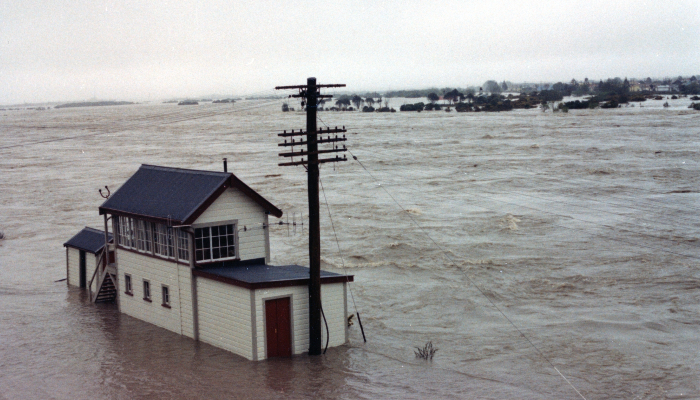
Image: September 1988 Flood, Grey River in Flood, Greymouth by John Charlton on Wikimedia Commons.
Entry last updated: 10/07/25
Introduction
Floods happen when large amounts of water from rivers, oceans, seas and lakes overflow onto land. This can result in the loss of lives, and the destruction of property and the environment. Climate change, heavy rain, large amounts of melting snow, tsunamis, cyclones, storms, breaking of levees and dams are some of the causes of floods. The websites below will help you understand more about floods and how to prepare for them.
Well-known floods
Here are some of the most destructive floods from the 20th and 21st centuries:
1927 - Mississippi River, United States.
1931 - Yangtze-Hui River, China.
2004 - an underwater earthquake in the Indian Ocean caused a tsunami that flooded the coasts of Indonesia, India, Sri Lanka, Maldives, Malaysia and Thailand.
2005 - Hurricane Katrina flooded New Orleans in the United States.
2010 - Indus River, Pakistan.
2021 - Uttarakhand, a state in India.
There were also many major floods in Aotearoa New Zealand:
1863 - Central Otago.
1953 - Whangaehu River.
1984 - Invercargill, Riverton, Ōtautau, Tūātapere and Bluff.
1988 - Cyclone Bola causes floods in Hawke's Bay and the East Coast of the North Island.
2023 - Cyclone Gabrielle causes floods in Northland, Auckland, Coromandel, Bay of Plenty, Tairāwhiti and Hawke's Bay.
Funded by a European Union programme, this website has news about the latest flood events from around the world, including Aotearoa New Zealand.
Select a world region to explore the latest news of flooding in that part of the world.
Go to Protections & Recovery to explore what is being done worldwide about flood protection, warning and forecasting of floods, and recovery from floods.
The tab on Climate News has articles on the impact of climate change on floods.
Tips: Websites that have .com or .co in the address can have good information, but you need to assess how reliable it is. Check the About us link on the website, if you can find one. That can tell you what the company’s mission and values are.
What are floods?
Here are some reliable websites to help you understand what floods are, what causes floods, and what can be done to prevent flooding.
This is one of the EPIC resources. EPIC is a collection of reliable databases that has good information on all sorts of topics including floods.
Use the Middle level to enter the search word 'floods'.
The article Flood explains what floods and flash floods are, and the causes of floods such as heavy rain, cyclones, silting and tsunamis.
Look at flood control and dam (engineering) to understand protective measures against flooding.
Tips: To get to the EPIC resources you will need a password from your school librarian first. Or you can chat with one of our AnyQuestions librarians and they will help you online. Some EPIC databases may also be available through your public library.
This website has been designed to help children learn about weather events and natural disasters.
Go to Weather from the top of the page and select Rain and floods.
From the menu list on the left, explore the pages on Flood Questions, Flood Definitions and Flood Safety.
Tips: Some websites have advertisements (or ads) which ask us to buy something or tell us to ‘click here’. It’s best to ignore these ads and focus on the information we’re looking for.
HowStuffWorks is a good website for discovering how all sorts of things work. It also covers information on health, science, culture, technology, money etc.
Use the search word 'floods' in the search box.
Read the articles on How Floods Work and How to prepare for a flood.
You could also look at Are there more floods now than there used to be?
Tips: Search words, or keywords, are the most important words in our question. You can leave out small words like ‘the’ and ‘of’ and just choose the main ones, eg 'floods'. We can always change our keywords or add more if we need to.
Floods in New Zealand
Use the websites below to find out why New Zealand is prone (likely to experience) to floods, and how measures like dams, stopbanks, river monitoring and flood warning help control floods.
Te Ara: The Encyclopedia of New Zealand
Te Ara is an excellent starting point for all questions about Aotearoa New Zealand. If we look at the bottom of the page we can see that the website belongs to the Ministry for Culture & Heritage.
Enter the keyword 'floods' into the search box.
The story Floods includes information on why floods are New Zealand's number one hazard, flood control measures and major flood disasters in Aotearoa over the years.
NZ History is another great website from the Ministry for Culture & Heritage. It has information about people, places and events in the history of New Zealand.
The search word 'floods' brings up a page of dates and flood events in the history of Aotearoa.
Try the button for floods to read about the 1878 — Great Flood hits South Island and other floods in New Zealand's history.
Tips: We like sites like this because they’re reliable. You can tell because of their web address – they have either .govt or .ac, meaning they are from government or educational organisations. They’re also New Zealand sites, so relevant for us.
What to do in a flood
Floods can happen anywhere in Aotearoa New Zealand, so it is always best to be prepared for one.
This website has been put together by the National Emergency Management Agency (NEMA). It has information on what to do before, after, and during different types of emergencies.
The tab In an emergency has a link to Floods.
This page helps you prepare for a flood, and reduce the impacts of floods.
National Emergency Management Agency (NEMA)
NEMA is the New Zealand government's organisation for emergency management. Explore each of the tabs to get familiar with how this site can be useful in a disaster emergency.
Go to Get Ready to find a plan for an emergency at school or at home.
The tab Local civil defence groups links to local authorities (councils) responsible for Civil Defence Emergency Management (CDEM) in various regions in New Zealand.
Or, enter the word 'floods' into the search box to find Reduction: Reduce the impacts of floods and Readiness: Get prepared to respond to floods.
Tips: Many web pages have links to further information or to other recommended sites. Following these links is a great way to find out more.
Books
Your school or local library are the best places to look for information about floods. Here are some titles to help you with your search for books on floods:
Floods by Rachel Werner.
The science behind super floods by Louise Spilsbury.
Drowning: rising oceans and frequent floods by Alex David.
Surviving floods by Elizabeth Raum.
New Zealand disasters: our response, resilience and recovery by Maria Gill.
SCIS no: 5468569
Topics covered
Related content

Tsunamis
Where can I find information about tsunamis?
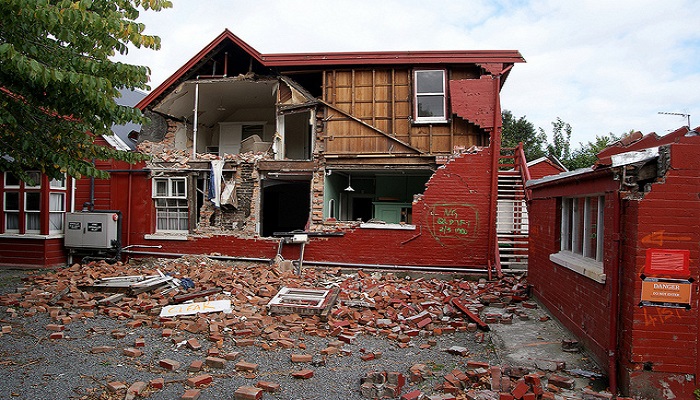
Natural disasters (NZ)
Where can I find information about natural disasters in New Zealand?
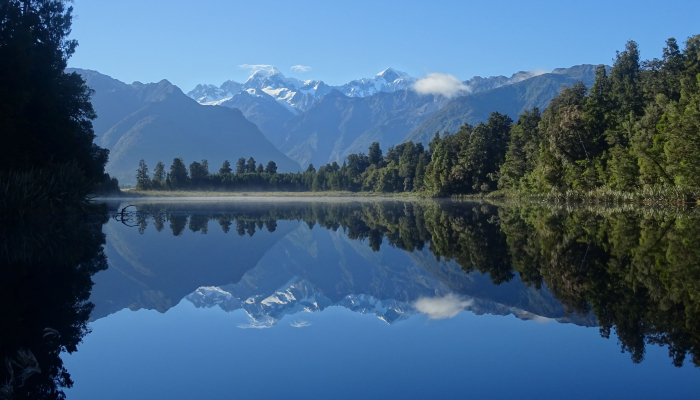
Lakes (New Zealand)
Where can I find information about lakes in New Zealand?
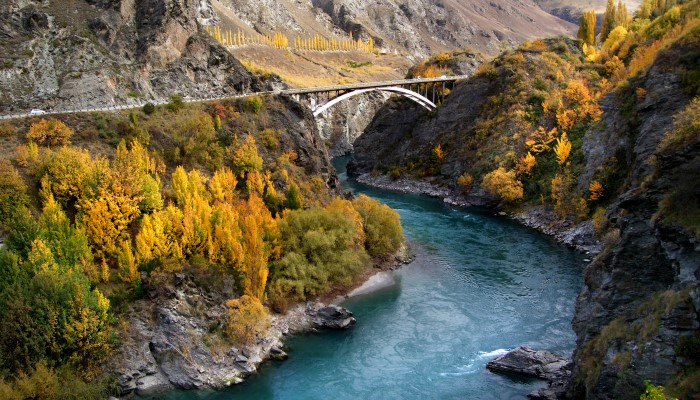
Rivers (New Zealand)
Where can I find information about rivers in New Zealand?
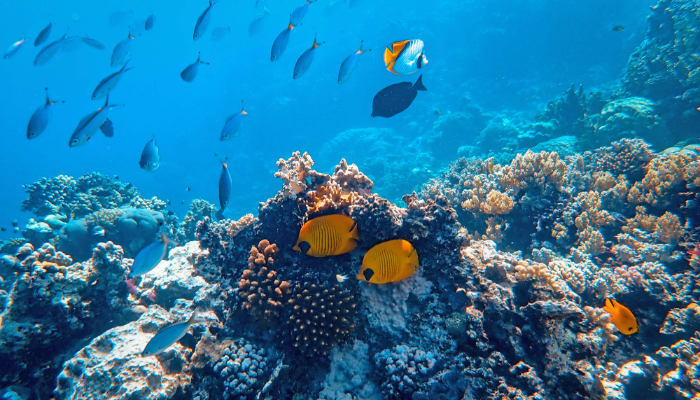
Oceans
Where can I find information about oceans?
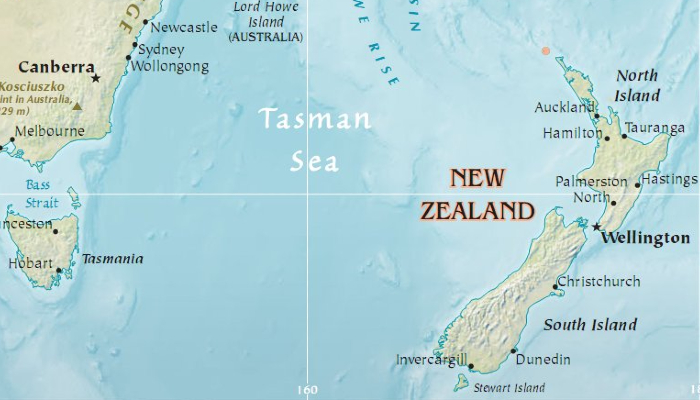
Seas
Where can I find information about seas around the world?
